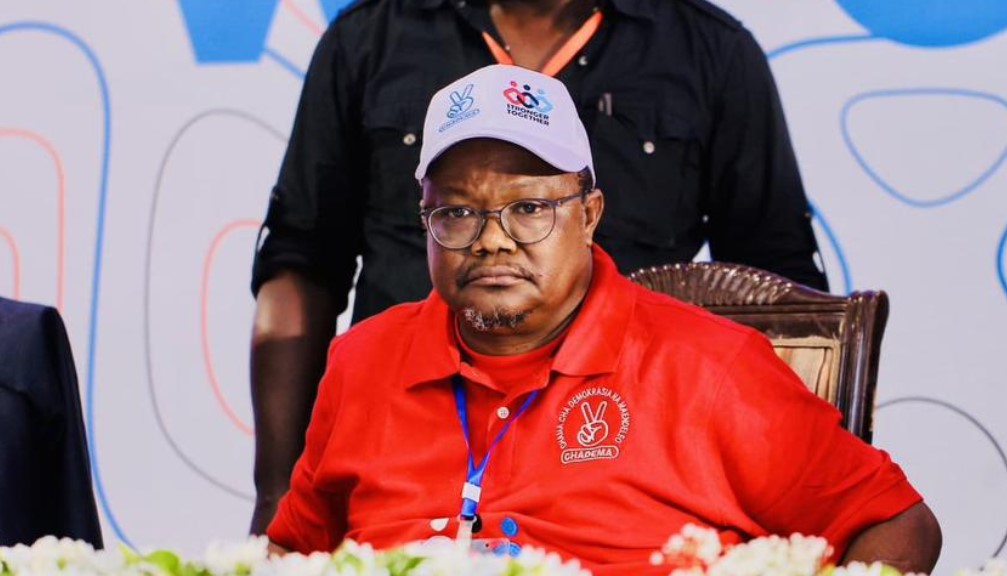Tanzanian opposition leader Tundu Lissu, a prominent figure in the push for democratic reforms, has been charged with treason following his arrest late Wednesday after addressing a public rally in the southern town of Mbinga. The arrest comes just six months ahead of Tanzania’s general elections scheduled for October.
Lissu, who leads the CHADEMA party, was taken into custody by police shortly after delivering a speech calling for sweeping electoral reforms to ensure a free and fair election process. He was transported more than 1,000 kilometers to Dar es Salaam, where he appeared in court on Thursday afternoon, flanked by his lawyers and opposition colleagues.
Despite facing grave charges, Lissu appeared in high spirits as he arrived at the Kisutu Magistrate’s Court, smiling and waving to supporters.
Police said Lissu was arrested for incitement, but the charges escalated to treason after further interrogation. Authorities have yet to provide clear evidence supporting the charge, sparking outrage among human rights activists and political observers.
“This is a clear case of political persecution,” said a lawyer close to the CHADEMA legal team. “Calling for electoral reforms is not treason—it is a right under any democratic system.”
Lissu has long been a thorn in the side of Tanzania’s ruling party, Chama Cha Mapinduzi (CCM), which has held uninterrupted power since the country’s independence in 1961. CHADEMA has consistently criticized the electoral process, citing bias in the national election commission and laws that tilt the political playing field in favor of CCM.
In 2017, Lissu survived a dramatic assassination attempt in which he was shot 16 times—a case that remains unsolved and is widely believed to be politically motivated.
Ahead of this year’s vote, tensions are rising as opposition figures and civil society groups demand reforms, including an independent electoral body, equal access to media, and a level political playing field.
President Samia Suluhu Hassan’s government has denied accusations of stifling dissent and insists that the upcoming elections will be free and fair.
However, Lissu’s arrest has triggered fresh concerns about political repression in the East African nation.
“This is a deliberate strategy to silence dissent and intimidate opposition voices,” said a spokesperson for the Tanzanian Human Rights Defenders Coalition. “The government must stop weaponizing the law to crush democracy.”
International observers have called on the Tanzanian authorities to respect civil liberties, including freedom of expression and assembly, and to guarantee the safety and legal rights of all political actors.
As CHADEMA rallies behind its embattled leader, the treason case is expected to be a key flashpoint in the lead-up to one of Tanzania’s most consequential elections in decades.



